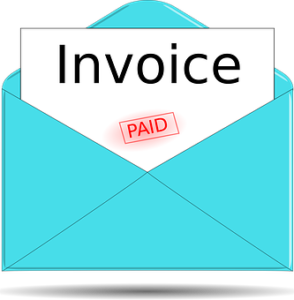A healthy cash flow is vital to your business so getting clients to pay on time is key. Your business, irrespective of size will struggle if your customers don’t pay their invoices promptly. To see the money rolling in on time, you will have to set systems in place, which make it simple for your clients to pay you. In Business-to-Consumer (B2C), it is usual that customers pay for their goods and services immediately. However in Business-to-Business (B2B), you will have to invoice them. In this article, team4 gives you seven of our top tips to speed up those incoming payments to give you the best chance of getting your clients to pay on time. These are some of the most effective ways that we use and they won’t compromise your relationship with your .
How to get your clients to pay on time
- Set out clear payment terms – immediate or specify the number of days
- Invoice as soon as possible – clients can’t pay until they receive an invoice
- Organise payment administration – there is a process to being paid
- Reward early and on time payments – think of a discount to encourage speedy payment
- Offer a recurring payment option
- Add payment options directly into the invoice
- Embrace payment technology – use accounting software that is the most suitable for your business

- Establish clear and exact payment terms
Sometimes clients don’t pay you when you think they should because they don’t know your terms – you haven’t told them. Add a contract section explaining exact payment terms, ways of paying, date payment is due and any other details that may be relevant. Discuss this with your client so that there are no misunderstandings. Ask customers if a specific invoice format is required or if they use an in-house system.
- Send invoices as soon as possible
In order to get clients to pay on time, send invoices as soon as possible. Once the client receives the invoice, your payments terms will kick in. It’s also acceptable to send gentle reminders. This could be to let your client know that the payment date is looming. If you take advantage of technology, this can be done automatically and this way you won’t appear pushy.
- Payment administration must be organised
Depending on the size of the business you are invoicing, there will be a chain of command. This will start with the person who deals with payments, the person who approves the work and finally the person who pays it. Make sure all the necessary people receive the invoice.

- Reward early and on time payments
Incentives can work really well and a discount for a prompt payment such as 5% might encourage people to pay. You can try to be quite creative with this. Conversely to discourage late payments, you could add an interest or late payment fee.
- Offer a recurring payment option
With some clients, you may offer the same services each month with the same payment due. An automatic payment could be set and here you won’t have to worry about invoicing dates. If the invoice varies slightly each month, you can still set this system up. Let the client know the base amount that will be going out each month and notify them of any additional costs before you add them on.

- Add payment links directly into the invoice
Lots of clients do want to pay on time and so you must make it as simple as possible. Opening up another browser, logging into an account before money can be sent may become tedious to the customer. If your invoicing system supports it, integrate payment links/buttons directly into the invoice. Clients can then pay via digital payment gateways such as PayPal or GoCardless.
- Use payment technology
In this digital age, e-invoices are normally sent. These are easily done with the technology that is available today. Using accounting software, invoices are sent out immediately via email. This has the added advantages that records can be kept more easily and payments can be tracked seamlessly.

How can bookkeepers get clients to pay on time?
One of the many roles of a bookkeeper is to prepare invoices and send them to your clients so payment is received on time. They will also manage the accounts receivable ledger and chase up any late payers. The easier and more convenient you can make the process of paying invoices, the better.
How can team4 help you with invoicing your clients?
As bookkeepers, we specialise in getting clients to pay on time. We are here to streamline your payment processes. Our bookkeepers use a variety of accounting software so that customers are billed quickly with payment terms clearly stated. And we chase up any outstanding invoices so you don’t have to. We are pretty rigorous when it comes to chasing outstanding invoices and use accounting technology such as Sage, QuickBooks and Xero to automate the process. Our aim is to keep your financial stress to a minimum, so you maintain good relationships with your clients and have a strong cash flow. For help with your invoicing, please get in touch with team4, call us on 01825 763378 or email info@team4bookkeeping.co.uk.
